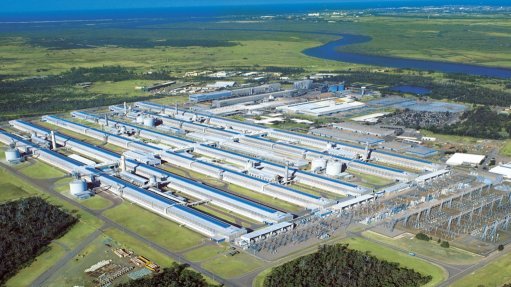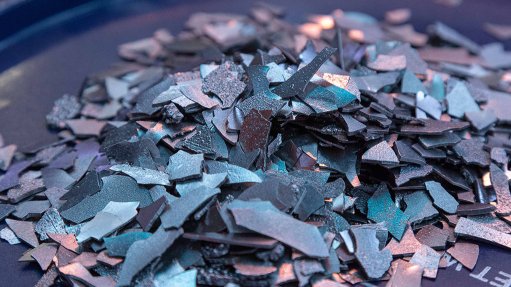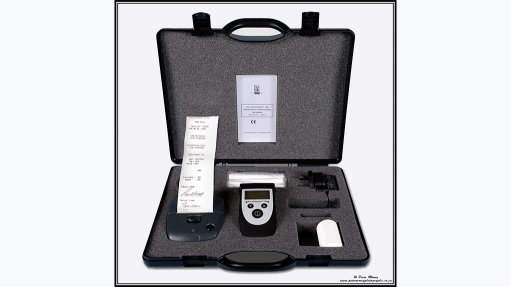New forum takes the plunge to clean up years-long pollution in the Vaal river
The Department of Water and Sanitation (DWS) has launched a new forum aimed at mitigating the years-long pollution impacting the Vaal river’s water quality, sounding the alarm on the declining water quality and increasing contamination.
“The pollution of our water resources remains one of the greatest risks that faces our water security and sustainability. I am here to say, this is our moment to act and act decisively against the pollution and contamination of our water resources or we will face a disaster of titanic proportions,” says Water and Sanitation Deputy Minister Sello Seitlholo.
As one of South Africa’s largest rivers and a popular tourist destination, the Vaal river and its dams are vital for the country’s economy and for millions of jobs and livelihoods.
The 1 200-km-long Vaal river, he says, is often described as the hardest working river in South Africa, crossing a number provinces, namely Mpumalanga, Gauteng, the Free State and the Northern Cape.
Large dams, including the Grootdraai, Vaal and Bloemhof dams, are located on the river to ensure a steady water supply to citizens of these provinces and the industries dependent on water from the river.
“The Vaal dam is the most important dam in the country because of its role as the primary supplier of water to the economic heartland of South Africa. The industrial areas it supplies produce more than 50% of South Africa’s wealth and account for more than 80% of the country’s electricity requirements. From the Vaal river, water is also supplied to some of the largest gold and platinum mines,” Seitlholo explains.
These dams, including the Vaal Barrage, are also used by many for recreational, tourism and hospitality activities.
“[The launch of the Vaal River Anti-Pollution Forum] is an important moment. We are here to say the issue of pollution of our water resources is the business of every South African and every industry. The forum must play a crucial role in ensuring that stakeholders are constantly around the table to chart solutions towards fighting pollution of the Vaal river.”
Members of the non-statutory forum include various stakeholders, particularly those directly affected by the declining water quality, with Marius Keet appointed by the Water and Sanitation Minister as chairperson, and have been tasked with various mandates to mitigate the pollution challenge.
With the aim of protecting the Vaal river and providing high-level guidance, the Vaal River Anti-Pollution Forum will coordinate, improve and integrate efforts to manage the water quality of the Vaal river in line with determined resource quality objectives.
This will be done through addressing risks elevated by the 16 catchment management forums – ten in the Upper Vaal, four in the Middle Vaal and two in the Lower Vaal – which will continue to operate as normal, but will escalate systemic challenges that cannot be resolved within these sub-catchments to the forum.
“The forum, through task teams, will also investigate and make recommendations on short-medium- and long-term actions that must be taken to improve the performance of the smaller forums and to elevate and effect any systematic actions in improving the water quality status in the Vaal, linked to the Catchment Management Strategy for Vaal Orange Catchment Management Agency and the larger national water quality strategy to synchronise role player actions.”
The forum is also responsible for the coordination and support of awareness- building initiatives regarding water quality management in the Vaal river catchment; ensuring adequate stakeholder participation in the forum processes; and investigating and recommending innovative and best applicable technologies to deal with water pollution.
The forum will identify remedial actions to mitigate the impact of contamination and pollution as a result of water use by sectors such as mines, industries, agriculture and wastewater works, besides others.
The members will also be responsible for enhancing collaboration with various institutions to improve the quality of the Vaal river; providing support to the existing catchment forums in the Vaal river; and publishing reports on a yearly basis to track the performance and implementation of recommendations and activities of the forum.
Seitlholo, who will be leading the anti- pollution drive across South Africa, says that, through the forum, polluters will also be taken to task and held accountable for their actions.
“We are a water-scarce country; as such, we cannot continue treating people who do not respect this precious resource with kid gloves. Through the forum, we want to ensure that transgressors are brought to book so that they account for their crimes. Any person or entity that continues to pollute water sources will face the full might of the law,” he says.
The DWS will create a database to keep a record of all polluters in the country, as well as their transgressions and the actions taken against them.
“The National Polluters Register will assist us to bring attention and pressure to polluters, with the hope that it brings change in their behaviour. The register will then be placed on the departmental website, where members of the public will be able to access it,” Seitlholo continues.
With a vision of access to clean and safe water for all, in addition to the establishment of the National Polluters Register, the DWS will establish dedicated channels for stakeholders and the public to participate in reporting pollution, such as dedicated reporting desks; embark on a people-centred national campaign on water anti-pollution; strengthen regulatory, compliance and enforcement capacity; and establish dedicated green investigative units and tribunals.
The DWS also called for public-private partnerships, requesting that the private sector and business play their role in safeguarding the water resources they rely upon to grow the economy and create jobs.
“They must play an active role in eliminating pollution. They must also play their role in sounding the alarm where pollution of water resources occurs by other role players. The pollution of water resources is the responsibility of everyone.
“It is also my hope that through the successes and lessons of the Forum, we may be able to replicate this work throughout the country,” he concludes.
Article Enquiry
Email Article
Save Article
Feedback
To advertise email advertising@creamermedia.co.za or click here
Press Office
Announcements
What's On
Subscribe to improve your user experience...
Option 1 (equivalent of R125 a month):
Receive a weekly copy of Creamer Media's Engineering News & Mining Weekly magazine
(print copy for those in South Africa and e-magazine for those outside of South Africa)
Receive daily email newsletters
Access to full search results
Access archive of magazine back copies
Access to Projects in Progress
Access to ONE Research Report of your choice in PDF format
Option 2 (equivalent of R375 a month):
All benefits from Option 1
PLUS
Access to Creamer Media's Research Channel Africa for ALL Research Reports, in PDF format, on various industrial and mining sectors
including Electricity; Water; Energy Transition; Hydrogen; Roads, Rail and Ports; Coal; Gold; Platinum; Battery Metals; etc.
Already a subscriber?
Forgotten your password?
Receive weekly copy of Creamer Media's Engineering News & Mining Weekly magazine (print copy for those in South Africa and e-magazine for those outside of South Africa)
➕
Recieve daily email newsletters
➕
Access to full search results
➕
Access archive of magazine back copies
➕
Access to Projects in Progress
➕
Access to ONE Research Report of your choice in PDF format
RESEARCH CHANNEL AFRICA
R4500 (equivalent of R375 a month)
SUBSCRIBEAll benefits from Option 1
➕
Access to Creamer Media's Research Channel Africa for ALL Research Reports on various industrial and mining sectors, in PDF format, including on:
Electricity
➕
Water
➕
Energy Transition
➕
Hydrogen
➕
Roads, Rail and Ports
➕
Coal
➕
Gold
➕
Platinum
➕
Battery Metals
➕
etc.
Receive all benefits from Option 1 or Option 2 delivered to numerous people at your company
➕
Multiple User names and Passwords for simultaneous log-ins
➕
Intranet integration access to all in your organisation


















